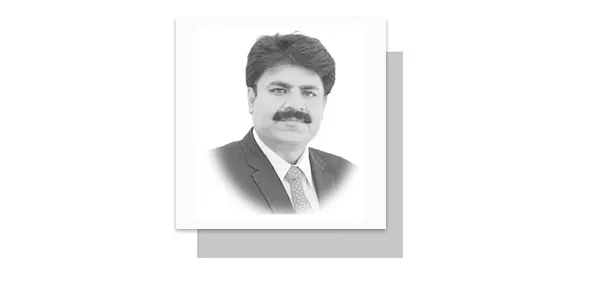EVERYONE has the right to form groups or unions, as recognized by the Elections Act of 2017 and Article 17 of the Constitution (which has been amended four times since 1973), subject to any reasonable restrictions imposed by the law in the interest of public order, morality, or Pakistan’s sovereignty or integrity. Any Pakistani citizen who is not employed by the government is entitled, under Article 17(3) of the Constitution, to create a political party, join it, maintain connection with it, engage in political activities and run for public office. But as the law and the Constitution both make clear, the legitimate limitations imposed by the law apply to these fundamental rights which are outlined in the second part of this article. The Elections Act of 2017 is one item of legislation that the Parliament passed in line with Article 17 of the Constitution.
A political party may be established and registered in Pakistan by submitting its Constitution, in accordance with Sections 200 and 201 of the Election Act of 2017, with a distinct identity for its national, provincial, and local structures. As further required by section 208, federal, provincial and local office-bearers of political parties shall be elected in accordance with the party’s constitution on a regular basis, with a maximum of five years between elections. If the party or parties to whom a show cause notice has been issued under sub-section (4) of section 215 fail to comply with the provisions of section 209 relating to intra-party affairs or section 210 for financial matters, the Election Commission may refuse to award an election symbol to any such political party or combination of political parties in subsequent elections under section 215 of the Election Act. This satisfies legal requirements and must have grave repercussions. The Elections Act of 2017 has always had Section 215 and all political parties were aware of this.
It is evident from the record that the political party in question has been urged multiple times to adhere to the necessary requirement since May 2021. In a general election, the party could face major repercussions if this criterion is not met under section 215; however, thus far, it has not been met. Furthermore, an admission was made before the Election Commission regarding such grave violations of the Party Constitution, the appointment of the Federal Election Commissioner, and, as a result, of the Election Act 2017 during the intra-party election process conducted in December 2023 under sections 209 and 215 of the Election Act. This acknowledgement is included in the Election Commission’s order of December 22, 2023, and it hasn’t been contested or supported in an appeals court.
In addition to the intra-party election that happened on December 2, 2023, the PTI filed a report in accordance with the Election Commission’s order dated November 23, 2023, and the Election Commission received a request for certification under section 209 of the Election Act, raising doubts about an apparent legal and political strategy. The November 23, 2023 order, however, was also contested in the Lahore High Court concurrently with this motion and the matter is still pending before a bigger bench of the Lahore High Court. In compliance with an order dated 22-12-2023, the Peshawar High Court has also heard arguments on the same intraparty election dispute and issued a ruling.
The Supreme Court also mentioned that in its most recent decision. According to the Supreme Court, under the Election Act of 2017, there are specified consequences for political parties that do not regularly organize elections inside their own parties. This includes the circumstances of the Benazir Bhutto case that was mentioned, as well as the present case’s legal framework. One of these repercussions and additional legislation is still in effect: Section 215 of the Electoral Act forbids the party from using its electoral emblem.
Article 17(2), in particular, makes it clear that these fundamental rights are also subject to any justifiable restrictions imposed by law, as provided by the Constitution and any laws enacted under it. Since May 2021, when it was in both the federal government and two provinces (Punjab and the KP), the Election Commission has reminded the political party (PTI) of this on multiple occasions in accordance with the pertinent provisions of the Election Act. It is not a resolution, legal choice, sound argument, or legally sustainable practice to allocate an electoral symbol without also meeting the other necessary legal conditions by relying just on one section of Article 17 of the Constitution.
In order to avoid serious legal repercussions, political parties must always take legal precautions and adhere to the law, particularly section 215 of the Election Act. The Election Commission will not be able to award an election symbol to any political party or group of political parties in future elections. This is especially true in the case of the Election Act’s Section 2015, which was passed in 2017 and hasn’t yet been ruled by Superior Courts to be legally flawed. The political parties in Pakistan, including the PTI, were fully aware of the legal implications of this rule.
Legal challenges based on discrimination, abuse of power, fraud, improper use of discretion and legal violations are always possible against orders made by bodies such as the Election Commission in higher courts. But as the record shows, in the present case before the Supreme Court, not a single one of these defences has been persuasively argued or proved. Political narratives cannot, therefore, take precedence over legal representations and arguments in a court of law. This may have a political cost, which in this instance PTI is paying for the next election in 2024.
—The writer is practicing Advocate of Supreme Court. He has earlier served as Chairman Customs, Excise and Sales Tax Appellate Tribunal, Senior Advisor Federal and Tax Ombudsman.
Email: [email protected]
views expressed are writer’s own.










